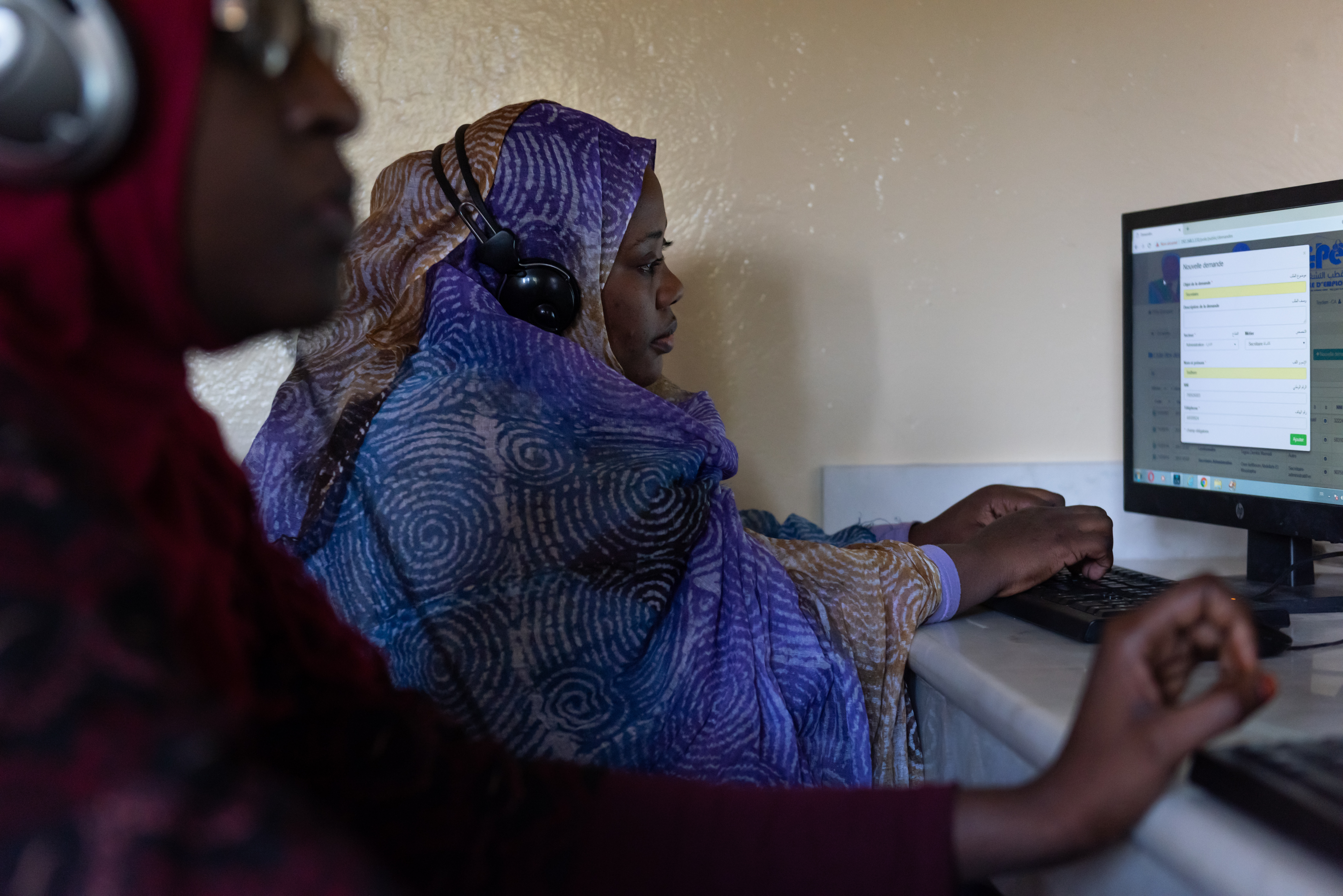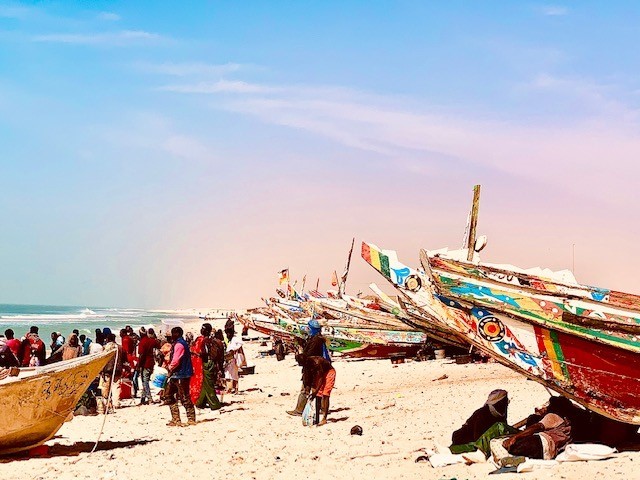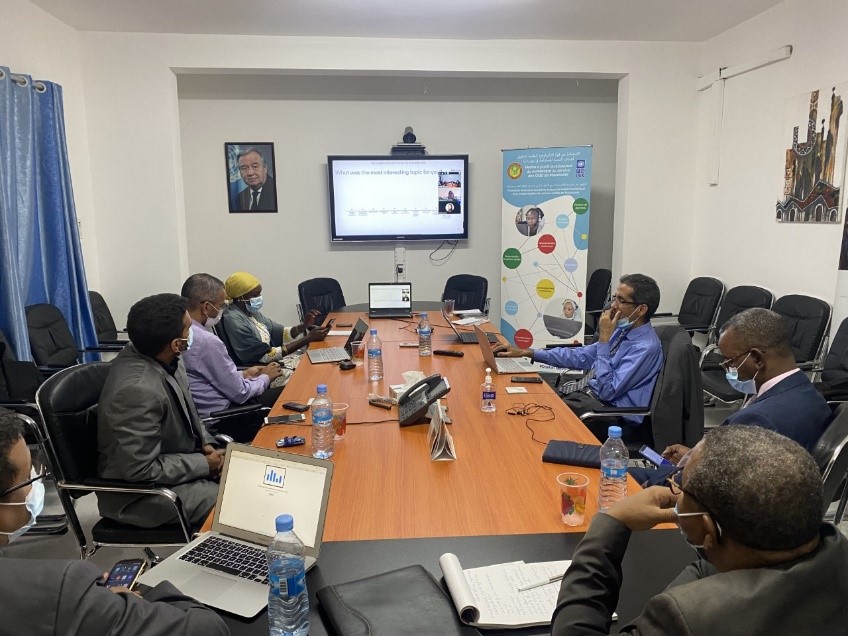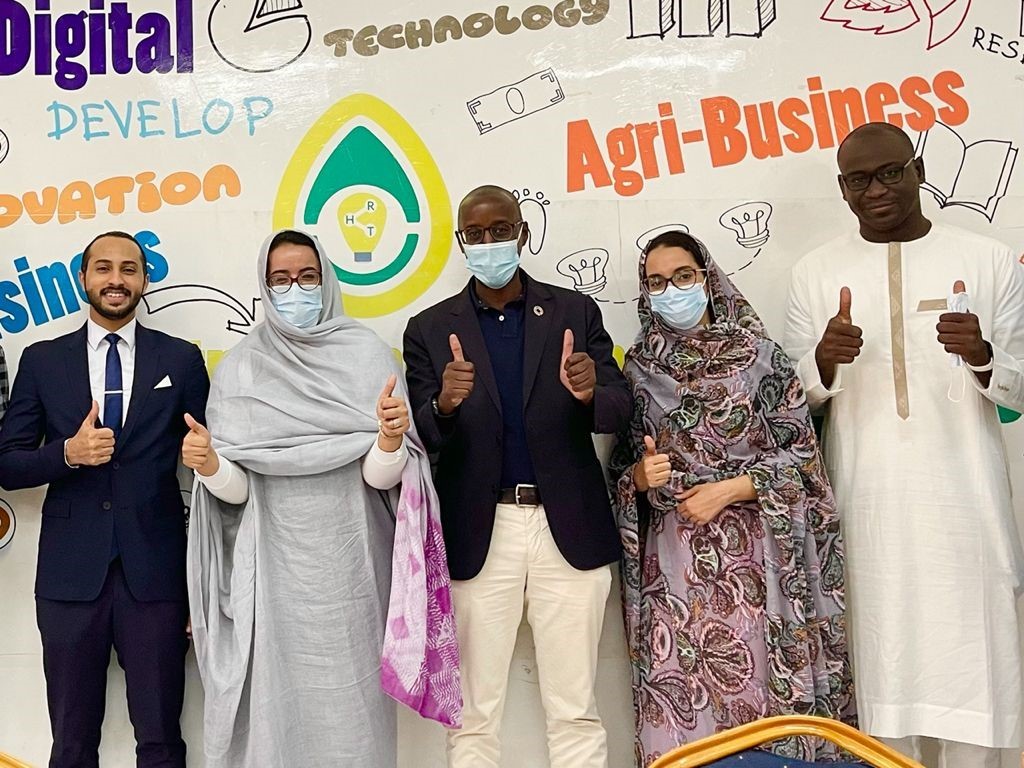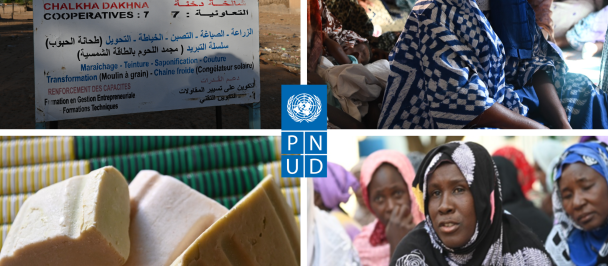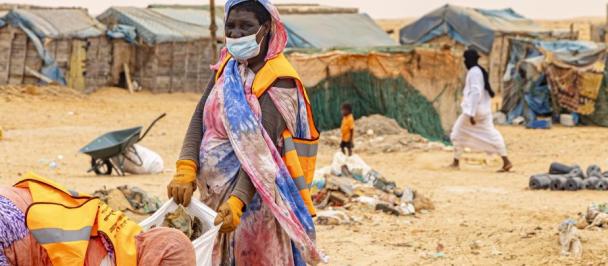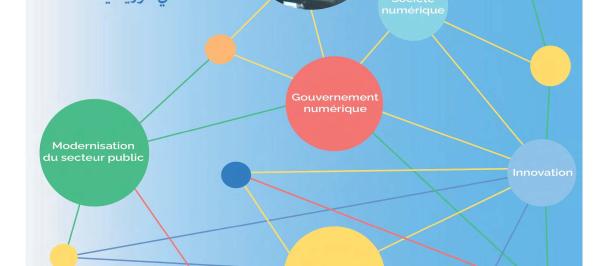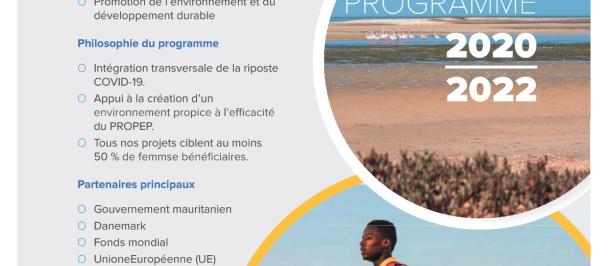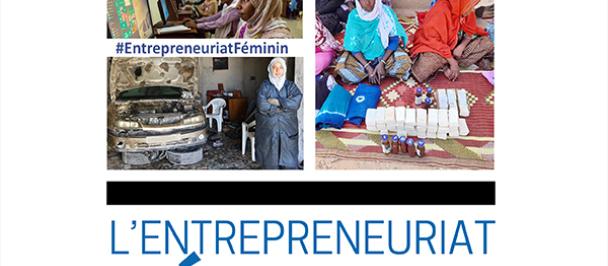How UNDP is helping accelerate inclusive digital transformation in Mauritania
© UNDP Mauritania/Freya Morales
By Anthony Ngororano, Resident Representative, UNDP Mauritania and Carolin Frankenhauser, Digital Analyst, Chief Digital Office
It is widely recognized that digital technology has huge potential in the development realm. But persistent digital divides also threaten to leave the most vulnerable further behind. The digital gender divide, for example, is particularly high in least developed countries (LDCs), where only 19 percent of women use the internet (compared with 31 percent of men).
UNDP is keenly aware of the fine line the development community must walk in promoting digital transformation. In Mauritania, UNDP is working with the newly created Ministry of Digital Transition, Innovation and Public Sector Modernisation (MTNIMA) to ensure that digital transformation contributes to development outcomes by being inclusive and beneficial to the most vulnerable.
Fishing boats on the Mauritanian shore, Nouakchott
© UNDP Mauritania - Fishing boats on the Mauritanian shore, Nouakchott
Mauritania is a vast country with a population density of just over four people per square kilometre of land area. Forty-four percent of the population live in rural areas, often in remote villages with very limited infrastructure or access to information and public services. According to the most recent data, collected in 2017, only 21 percent of the population used the internet. What’s more, the cost of fixed broadband remains prohibitively high for most of the population. In a context such as Mauritania, the opportunities inherent with digital transformation are clear. But digital transformation also stands to further exacerbate existing inequalities, for example between rural and urban populations. While use of digital technology and smartphones might be widespread in cities, rural populations are often disconnected, and would for example not be able to benefit from government services that are moved online.
Leveraging the potential of digital technology and innovation for development is a key priority in Mauritania’s national development strategy. Accelerated by the COVID-19 pandemic, the government has created a set of institutions to provide leadership for Mauritania’s digital transformation and to ensure a whole-of-government and whole-of-society approach. Guided by the High-Level Digital Council (HCN), a strategic council chaired by the Prime Minister and including private sector representatives, the newly created ministry (MTNIMA) is driving digital transformation across a range of strategic pillars including regulation, infrastructure, e-government, digital business, sectoral transformation, and human capital. MTNIMA will also work on improving transparency and accessibility of public services, as well as bringing the government closer to the Mauritanian people. "MTNIMA will serve as a central instrument to link our country's present to its future, says Dr. Mohamed Lemine Ould Salihi, MTNIMA's chief strategist on digital transformation, “as well as a bridge between the public administration and our citizens."
© UNDP/Carolin Frankenhauser
UNDP has been a key partner to MTNIMA since its inception, advising on digital inclusion and governance of public sector digital transformation and leveraging its integrator role in the UN system to identify strategic partners for implementation. As MTNIMA is currently in the process of sharing Mauritania’s digital transformation agenda, there is an exceptional opportunity to embed an inclusive approach in MTNIMA’s strategy, institutional design, and approaches from the start. So far, UNDP and MTNIMA have been working together on establishing a set of digital foundations:
- As a first step, UNDP conducted a benchmarking analysis to identify good practices for institutional setup required to best enable MTNIMA to drive the national digital transformation agenda. Based on the results, UNDP designed the structure, roles, responsibilities, and budget of a new State Digital Agency (ANETA) to serve as the implementation arm of MTNIMA. One of the key areas of work in ANETA’s mission statement is accelerating digital inclusion.
- Next, UNDP and MTNIMA conducted a high-level Digital Readiness Assessment that included an online survey to understand Mauritanians’ perspectives on the risks and opportunities of digital transformation. The results provided a high-level overview of Mauritania’s digital landscape and revealed a strong appetite among survey participants for digital technologies. More in-depth qualitative and quantitative research will be required to understand how different population groups are already using and benefiting from digital technologies, which digital divides exist, and who is being digitally excluded. UNDP will be working with MTNIMA on ensuring the new Digital Agenda results framework includes special focus on the most vulnerable.
- Together with the Estonian E-Governance Academy, UNDP and MTNIMA launched a month-long training moduleon the principles of e- governance for digital experts across the public sector. The training covered subjects including cybersecurity, data protection, and digital identity, and sparked many discussions within MTNIMA and beyond. Questions discussed include: Which forms of digital ID are most suitable for the Mauritanian context? How to change ways of working among public sector officials and increase the adoption of digital technologies? "For our department,” says Matchiane Bacar, MTNIMA project officer, “having launched several activities, the training series was very useful as it covered different important topics in the field of digitalization. In the future, we will see how to apply the acquired knowledge to our specific context."
In 2022, UNDP will continue to support MTNIMA as it refines its new Digital Agenda and sets up new processes and roles for its implementation. UNDP will continue to advocate for the importance of inclusive digital transformation and identify suitable partners, including through the Multistakeholder Network for Digital Capacity Building, the Digital Public Goods Alliance, and others.
© UNDP Mauritania - In 2022, UNDP will continue to support MTNIMA and to advocate for the importance of inclusive digital transformation and identify suitable partners.

 Locations
Locations